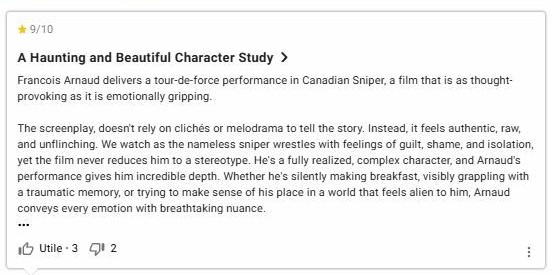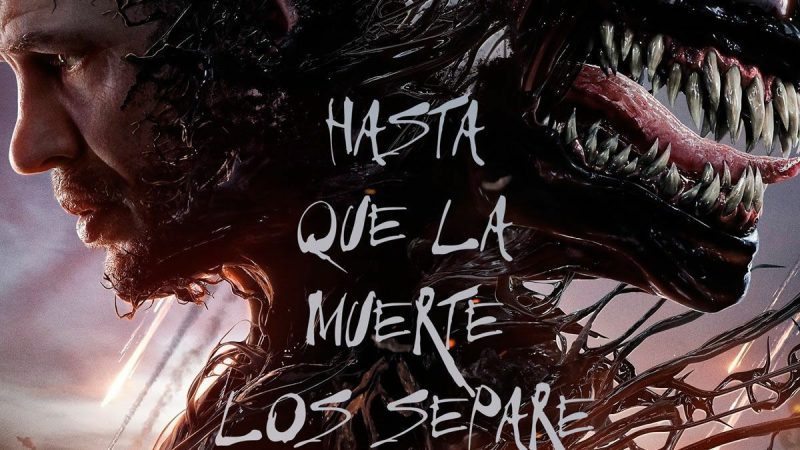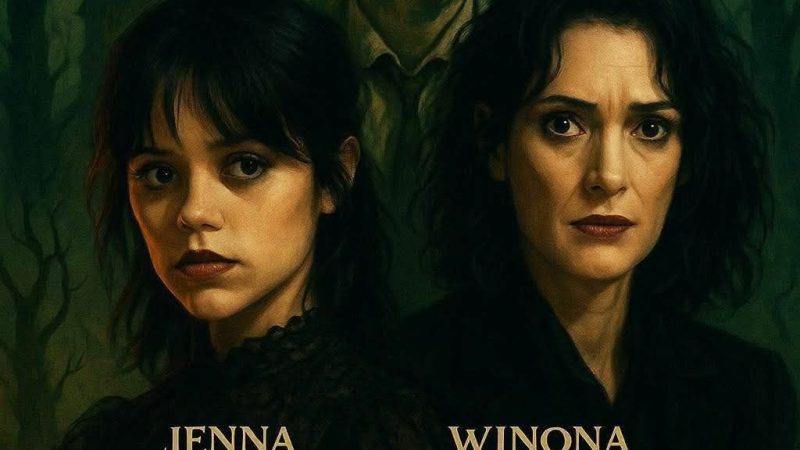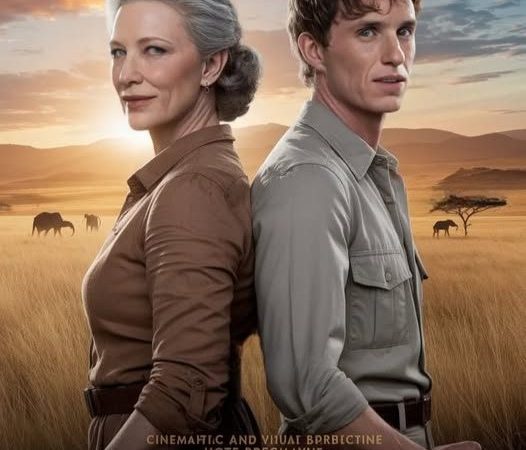🎬 Canadian, Sniper (2024): A Quiet War Within
In the shadow of distant wars and forgotten borders, Canadian, Sniper (2024) tells a story that doesn’t erupt in bullets and glory—but instead simmers in silence, trauma, and the long, uneasy road home.
Directed by Michel Kandinsky, the film stars François Arnaud as a Canadian marksman returning from war—not as a hero draped in medals, but as a haunted soul, burdened by what he’s seen and what he’s done. Unlike most sniper films that glorify precision and body count, this one dares to linger in the aftermath.
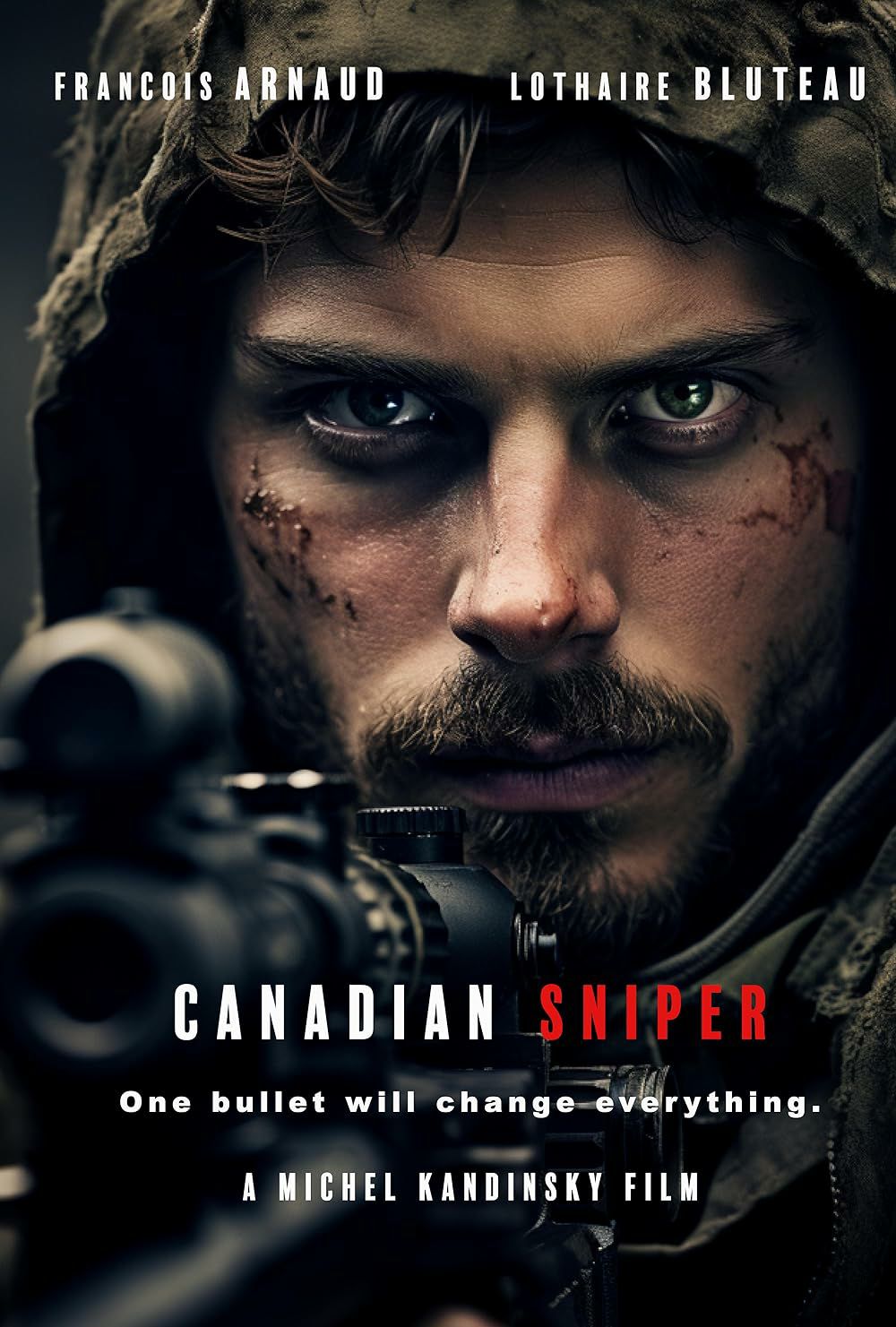
🧩 Plot Deep Dive: When the War Follows You Home
The story of Canadian, Sniper unfolds like a slow-burning memory—fragmented, elusive, and deeply personal.
After years deployed overseas as a sniper in an unnamed conflict, the unnamed protagonist (played by François Arnaud) returns to his rural hometown in Quebec. But home no longer feels like home. The familiar fields and forests feel foreign. Conversations with neighbors are strained. And sleep is something he cannot hold onto.
The film uses long silences, wide static shots, and minimal dialogue to reflect the emotional disconnect. The sniper doesn’t talk much—he observes. He scans every horizon, every open door, every twitch in the silence as if still searching for a target. But this time, the target is within: the trauma that won’t release him.
As he tries to settle into civilian life, the sniper learns that his estranged father—an alcoholic ex-soldier—has mysteriously disappeared. That disappearance becomes both literal and metaphorical. The search for his father mirrors the search for his own sense of identity, purpose, and belonging.
Did his father abandon him—or simply vanish the way soldiers sometimes do, slipping through the cracks of society and memory?

Along the way, he reconnects with a childhood friend (Julie, played by Sophie Desmarais), now a single mother working a quiet job in town. Their brief, tentative conversations are among the only glimpses of warmth in the film, though they, too, are weighed down by all that remains unsaid.
🧠 Themes: War Without Guns, Battles Without Blood
This isn’t a movie about military strategy or heroism. It’s about the war after the war—the mental war. The sniper is no longer being shot at, but he’s still ducking. No one’s watching him, but he feels surveilled. The fields are green, but his memories tint everything gray.
There are moments when the film breaks its stillness with sharp dream sequences—snapshots of gunfire, a child’s scream, or a desert landscape scorched by regret. But those moments fade quickly, swallowed by silence.

This is a film that dares to be difficult. That refuses easy catharsis.
🎭 Character Study, Not Combat Drama
François Arnaud delivers a minimalist but haunting performance. His character’s eyes carry the entire film—stoic, numb, and yet constantly on the edge of breaking. We watch him chop wood, mend fences, stare at a photograph for minutes on end—each action weighted with history.
There is no big twist. No climactic confrontation. Only a man trying to live. Or remember how to.
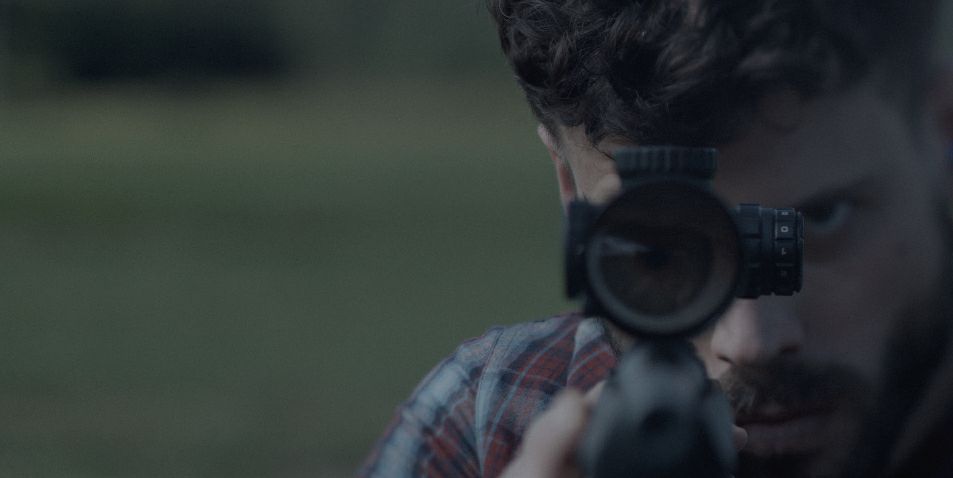
🎥 Cinematic Choices That Divide the Audience
At just over 80 minutes, Canadian, Sniper is slow-moving, restrained, and deliberately anti-sensational. Critics are divided:
-
On IMDb, the film holds a modest 3.3/10 score—many viewers citing its lack of action or urgency.
-
French outlet Critiques Cinéma notes that the film “feels emotionally muted, almost too passive.”
-
Yet others, like WorldFilmGeek, applaud it for doing something rare—turning a war story inward.
🎞️ Where and When to Watch
Premiered at the Arizona International Film Festival in April 2024, the film has since made quiet rounds at smaller festivals across Europe and North America, including Valencia, Vienna, and Boston. Now available for free streaming on Tubi and Plex, with rental options on Amazon, the film has found a second life online.
🌌 Final
Canadian, Sniper is not for everyone. It’s not a Canadian American Sniper. There are no sweeping battle scenes, no explosive climaxes. Instead, it asks quieter questions:
What happens when the war ends, but the mind refuses to leave the battlefield?
What do we return to, when home no longer feels like home?
Here is the full version of the movie: 👇
This film is a soft, solemn meditation on post-war identity. And sometimes, silence says more than gunfire ever could.
